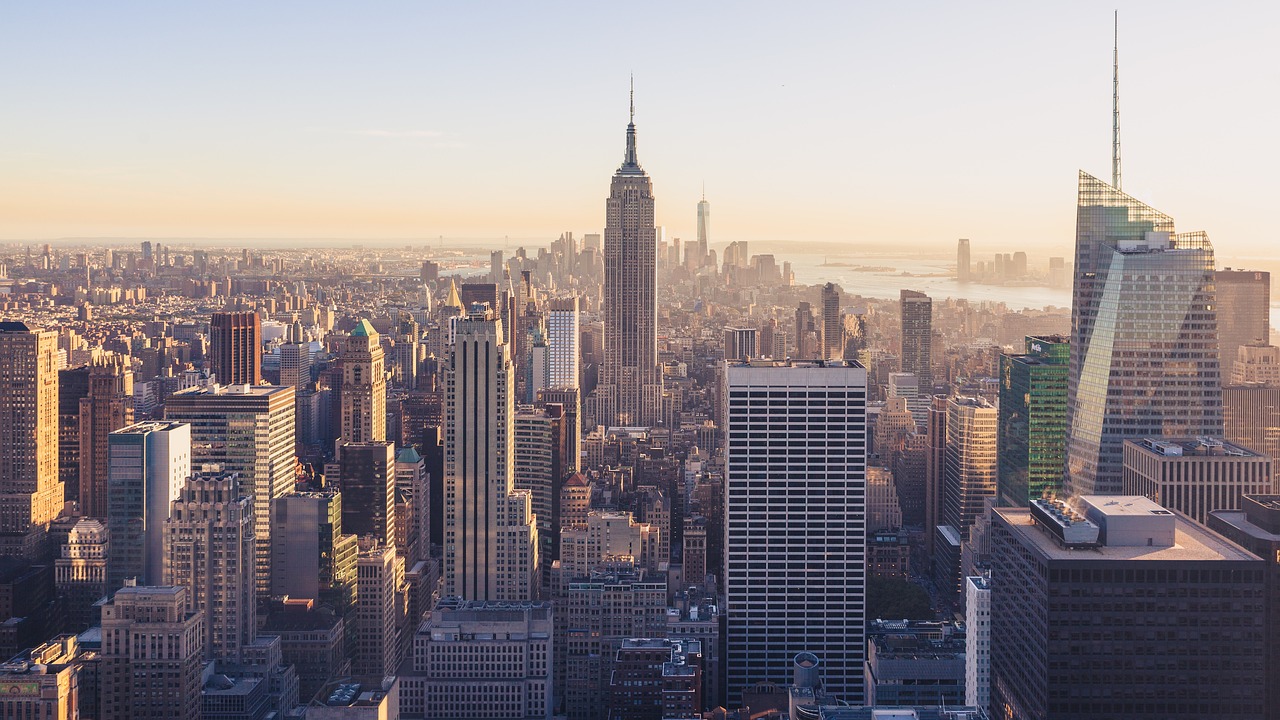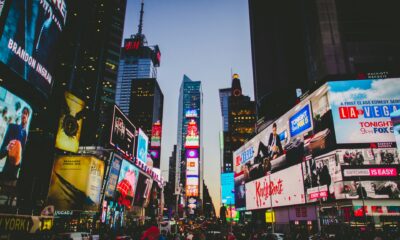Cannabis
How Cannabis Legalization Has Changed New York
Some people in New York welcome the change and see legalization as a step toward individual freedom and speak of a more sensible drug policy. They believe that legalizing cannabis will ease the burden on law enforcement and free up police resources for more important tasks. Legalizing cannabis is also an important reason to counter systemic racism in the U.S., in the eyes of advocates

The legalization of cannabis for recreational use has drastically changed not only the smell of New York but also the social, economic, and cultural fabric of the world’s metropolis. On March 31st, 2021 – just over two years ago – New York became the 15th U.S. state to allow the free use of cannabis to individuals 21 and older.
Other states, such as California, were ahead of New York, legalizing the sale and consumption of “weed,” as Americans call the intoxicant, as early as 2016. Cannabis consumption has become a fast-growing market in the sunny West.
Read more about the cannabis market in New York and find the latest cannabis news of the day with the Hemp.im mobile app.
However, New York is rapidly catching up, according to Forbes Magazine
The metropolis and state will be the second largest legal cannabis market in the U.S. after California within the next five years, with an estimated market volume of $4.2 billion (€3.9 billion).
Cannabis is not only filling the coffers of suppliers, however, but is massively changing the general mood in the city. Kelly, 22, is a student in New York and is experiencing the change firsthand.
Even before legalization, consumers could easily buy cannabis in the numerous unlicensed cannabis stores. However, they risked often receiving cut cannabis. Sellers often mixed the narcotic with other substances to cut down on pure cannabis and make more profit. “These days, you can smoke pot with more confidence, and access to high-quality products has improved,” Kelly said. But the biggest difference, according to Kelly, is increased openness and transparency on the streets. “Before, most of it was hidden; now you can openly enjoy your cannabis without paranoia.” Students at her university also smoke cannabis in public, although Fordham University in the Bronx borough, for example, describes itself as a “drug- and alcohol-free campus.” “The university is aware that many of the students use cannabis, but they also know it’s unavoidable,” Kelly said.
Americans are reacting to cannabis legalization in different ways
Some welcome the change and see legalization as a step toward individual freedom and speak of a more sensible drug policy. They believe that legalizing cannabis will ease the burden on law enforcement and free up police resources for more important tasks. Legalizing cannabis is also an important reason to counter systemic racism in the U.S., in the eyes of advocates. That’s the view of one former police officer, New York Mayor Eric Adams.
According to the city leader, this is “a new chapter for all those who have been most harmed by the failed policies of the past,” as he told Die Welt. He is referring to the stigmatization of black people, who – unlike with alcohol – were blamed for the drug’s use as a character flaw
Others, however, express concerns about possible negative effects on health and society. There is debate about how cannabis legalization will affect crime and whether cannabis use could lead to an increase in traffic accidents. Fundamentally, there is a fear that increased access to cannabis is likely to lead to a general increase in drug use and could serve as a gateway to more dangerous drugs.
The legalization of cannabis and the easier access that comes with it also affects minors. They could be enticed to try the drug even though they would not yet have learned to deal with the potential risks and effects. Disciplinary data from the city Department of Education shows that alcohol and drug offenses are up 10 percent this year compared to 2019, The New York Times reported. This data suggests that it is a problem that needs to be addressed. Furthermore, not everyone finds the sweet smell of cannabis pleasant and wants to have to smell it on every street corner. Others, like non-smokers, fear that they will become involuntary users of the narcotic.
Despite these differing views, however, there is a growing acceptance and tolerance for cannabis use in society and the negative associations that were associated with the use of cannabis have changed for the better. Slowly, cannabis is becoming an integral part of New York culture, attracting tourists from all over the world to try lucrative strains, such as Granddaddy Purple or Silver Haze.
New York is one of many cities adapting to the changing perception around cannabis, which like traditional alcohol has become a modern inevitability. As Germany and other countries consider legalizing cannabis, they should carefully consider New York’s experience. However, according to the legislative plans of the traffic light coalition, it looks like cannabis will soon be smelled in the streets of German cities as well.
__
(Featured image by Pexels via Pixabay)
DISCLAIMER: This article was written by a third-party contributor and does not reflect the opinion of Born2Invest, its management, staff or its associates. Please review our disclaimer for more information.
This article may include forward-looking statements. These forward-looking statements generally are identified by the words “believe,” “project,” “estimate,” “become,” “plan,” “will,” and similar expressions. These forward-looking statements involve known and unknown risks as well as uncertainties, including those discussed in the following cautionary statements and elsewhere in this article and on this site. Although the Company may believe that its expectations are based on reasonable assumptions, the actual results that the Company may achieve may differ materially from any forward-looking statements, which reflect the opinions of the management of the Company only as of the date hereof. Additionally, please make sure to read these important disclosures.
First published in RHEINISCHE POST, a third-party contributor translated and adapted the article from the original. In case of discrepancy, the original will prevail.
Although we made reasonable efforts to provide accurate translations, some parts may be incorrect. Born2Invest assumes no responsibility for errors, omissions or ambiguities in the translations provided on this website. Any person or entity relying on translated content does so at their own risk. Born2Invest is not responsible for losses caused by such reliance on the accuracy or reliability of translated information. If you wish to report an error or inaccuracy in the translation, we encourage you to contact us.

-

 Biotech1 week ago
Biotech1 week agoBiotech Booster: €196.4M Fund to Accelerate Dutch Innovation
-

 Business5 hours ago
Business5 hours agoThe TopRanked.io Weekly Affiliate Marketing Digest [The Top VPN Affiliate Programs Roundup]
-

 Crypto1 week ago
Crypto1 week agoBitcoin Traders Bet on $140,000: Massive Bets until September
-

 Crypto2 weeks ago
Crypto2 weeks agoCaution Prevails as Bitcoin Nears All-Time High
























